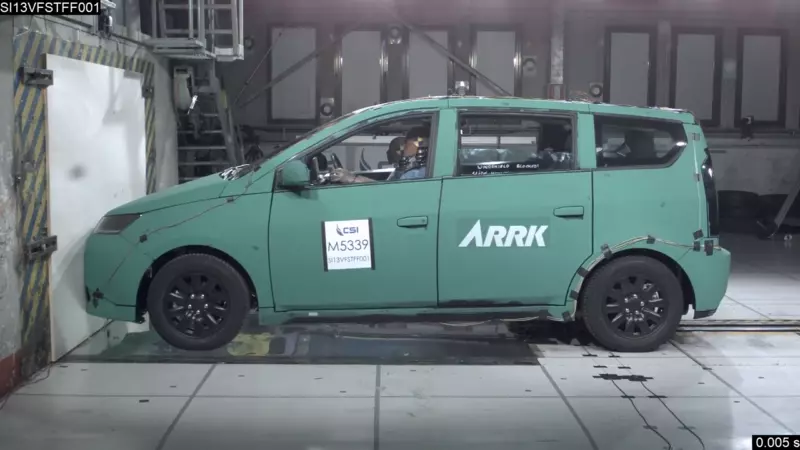German start-up Sono Motors announced that its solar panel-covered electric vehicle, the Sion, has successfully completed its first crash test. The 50 km/h (31 mph) test confirmed that the panels pose no additional threat to vehicle users.
The Sion is covered in Sono’s proprietary polymer-based solar panels, which did not splinter in the test, which simulates a heavy frontal crash. That, the automaker says, means that the Sion poses no danger to passengers or other road users because of its solar panels.
Thanks to this crash test and its extensive simulations, Sono says that it expects the EV to comply with all legal requirements for passenger and pedestrian safety, despite the novel technology being implemented on its body.
Read: Work On The Solar Powered Sono Sion Continues As Company Waits For Lifeline
“After years of running successful crash simulations, we are very proud to see our solar technology delivering the same satisfying and high quality results in real life,” said Markus Volmer, Sono’s CTO. “We want our customers to be able to drive with the comfort of knowing that the solar technology in their Sion is not only charging the battery for free, but also adheres to the highest safety standards.”
Sono claims that, thanks to those solar panels, the Sion can add up to 245 km (152 miles) of driving range per week, under ideal circumstances. That saves owners money, and means that they can partially charge their vehicle passively.
In addition to that technology, Sono Motors plans to equip the Sion with advanced driver assistance technology. Sion expects to offer forward collision warning, automatic emergency braking, lane departure warnings, lane keep assist, attention assist, traffic sign recognition, rear parking assistance, and a rearview camera as standard on the car which is projected to have an MSRP of €25,000 ($26,741 USD at current exchange rates).
Keeping it up to date will be over-the-air updates. Sono says that the first update it plans to push will add adaptive cruise control, after the Sion starts production.
“We want to ensure maximum safety, comfort and efficiency for Sion customers,” said Volmer. “By integrating state-of-the-art technology, we plan to make the Sion competitive for its start of production and ready for the future.”








